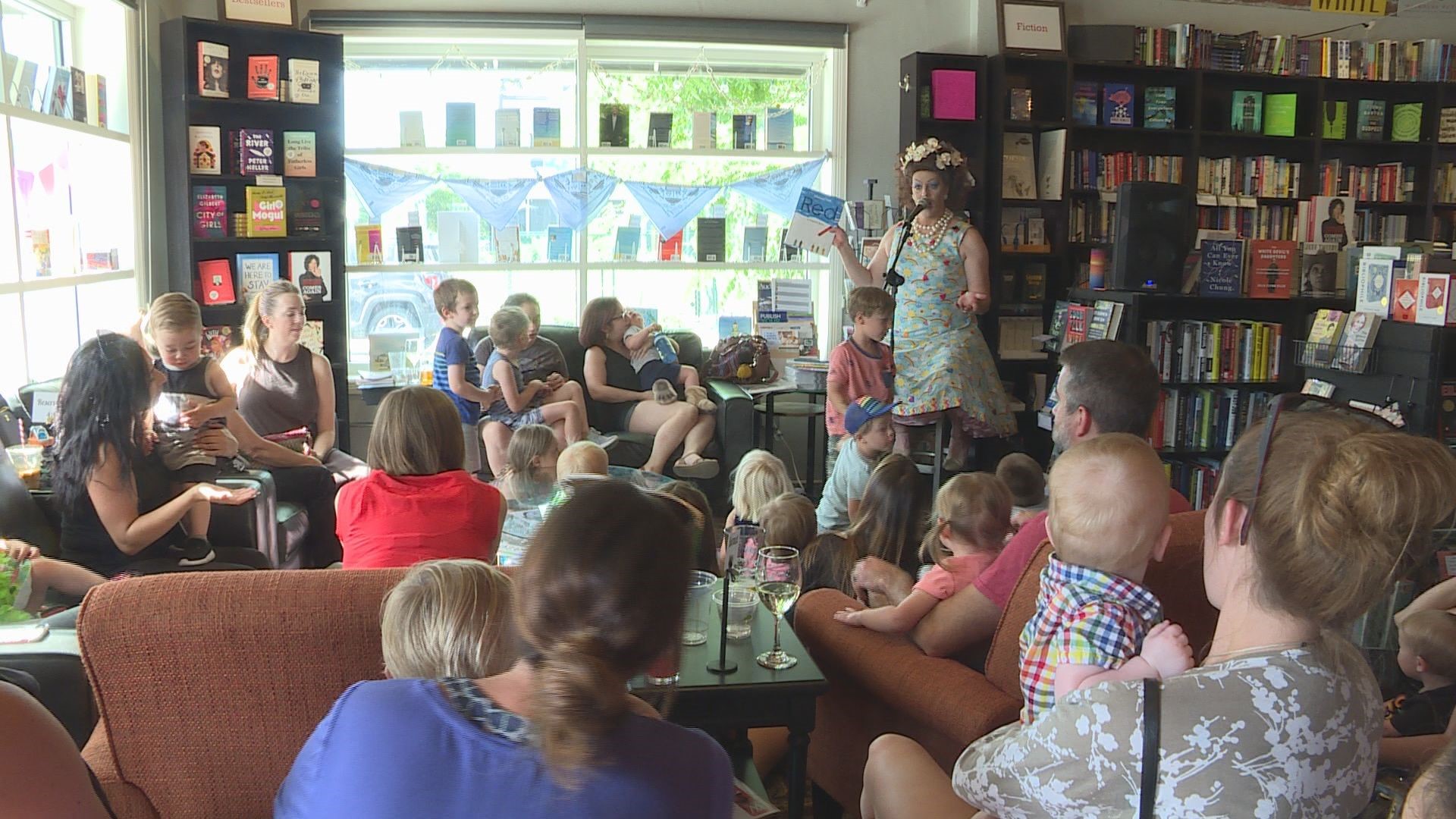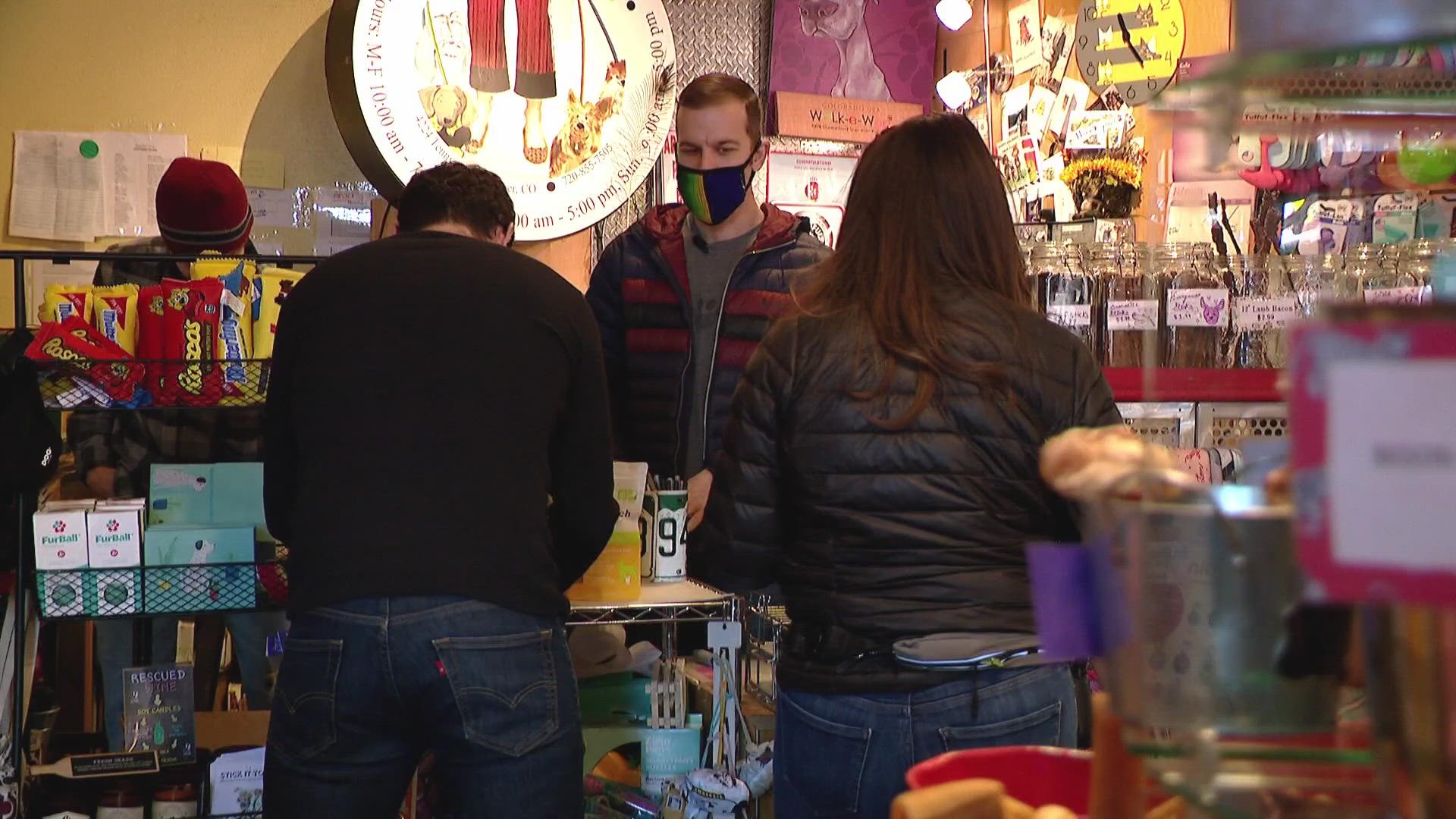Denver minimum wage hike squeezes businesses, helps struggling workers
Denver has the 7th-highest minimum wage in the country, according to an analysis of data from the Economic Policy Institute.

At Nicole Sullivan's bookstore on Tennyson Street, the bottom line got the last word.
A packed crowd gathered to say goodbye. Sullivan closed the final chapter of her 10-year-old business, BookBar, with a sparkling wine toast at the end of January.
"This is a good ending," she said. "And as a book lover, we always like a good ending."
Going out like this wasn't entirely her choice, Sullivan said. Expenses – driven by Denver's increasing minimum wage – made operating the bookstore unsustainable.
"It's just a simple math problem," she said.
At $17.29, Denver's minimum wage is the seventh-highest in the country, according to the Economic Policy Institute. The city council voted to hike the wage starting in 2020 and tie future increases to inflation. Since Sullivan opened BookBar in 2013, the hourly base wage has increased from $7.78.
"And it’s necessary! You know cost of living is going up, rent is going up, electricity is going up. So the minimum wage has to increase. It just didn’t work for us," Sullivan said.
Worker's perspective
Just a few doors down from BookBar, Kaiti Asmussen is trying to make it work for her. "It’s terrifying," the owner of Mouthfuls Pet Supply said. "Our payroll has increased — it’s doubled in the last three years."
She said she wants to pay her staff of 12 well – and her workers, like Vaughn Rask, need the money. "Just living here in Denver, it's an expensive place," he said.
Rask has worked at Mouthfuls and held a second job for five years. He cut a deal on his rent, but he said he still struggles to pay his bills. He said he wouldn't have been able to stick it out without the minimum wage increases.
"I think we're kind of noticing that we need to make up for a little lost ground in terms of wages and taxes, and other things that have been hammering the lower-income communities," Rask said.
Business economics would suggest Asmussen should just raise prices to cover increased wage costs, but she said that would ruin her competitiveness against cheaper, online pet supply alternatives.
"It’s cutthroat competition," she said. "It's not just that easy to say, 'Let's just add a couple of dollars to each product,' It doesn't feel right."
Sullivan found her pricing ability constrained by set costs for books, which are typically predetermined by publishers, and have increased only 5-7% over the past decade, she estimated.
"We’re kind of stuck between a rock and a hard place here," she said.
Economist's dilemma
Looking out from her Metropolitan State office over the Denver skyline, economics professor Christina Huber is torn.
"Obviously higher wages is always a good thing for workers," she said. "The caveat is that I wonder how much it will actually help workers."
She said minimum wage hikes challenge businesses – both small stores and large corporations – and may not aid workers as much as advertised, in part because minimum wage workers are not typically the primary earner in their families.
"If you look at the minimum wage as a tool to hopefully bring people out of poverty or increase their standard of living, it may not be a very good tool for doing that," Huber said.
Forty-four percent of minimum wage earners are under the age of 25, according to data from the federal Bureau of Labor Statistics. Part-time workers are more likely to earn minimum wage than their full-time, hourly counterparts, the data suggested.
Additionally, many companies will simply increase prices in response to wage costs going up. "That may negate any effect of an increase in the minimum wage," Huber said.
She suggested other economic tools – like direct payments or low-income tax credits – might provide a "bigger bang for the buck" when it comes to increasing standards of living.
"It’s much easier to wrap your head around increasing the wage than increasing some sort of tax credit," she said. "Why aren’t we, as the taxpayer, bearing that cost of the objective that we have?"
Closing the book
Sullivan isn't the only one saying goodbye to BookBar.
On its closing night Jan. 31, the neighborhood crowd gathered to share their memories of the store. A young child named Scout stepped up to the mic. "I really like BookBar, I'm sad that it has to go," she said, before pulling out a guitar and launching into an original song.
Others shared how much the store meant to them. "This is my church," said one. "It fit me. It fit me well," said another.
Drag queen Shirley Delta Blow emceed the event – and said the store hosted the first drag queen story time in the state. "In 2017, before it was cool and really controversial," she added, to laughter from the audience.
Sullivan said she is optimistic about the future of small business in Denver. She now runs Bookies, a store near Cherry Creek, which she said is possible because it requires fewer employees and less overhead cost.
But it won't replace BookBar, she said, adding the city needs places for the community to gather as they did on the Tennyson Street store's final night.
"Where are we going to have spaces where we can meet in the middle? Where we can come together and talk to one another and sort things out?" she asked.
"We need spaces like this more than ever and it's harder than ever to run them."
SUGGESTED VIDEOS: Latest from 9NEWS


